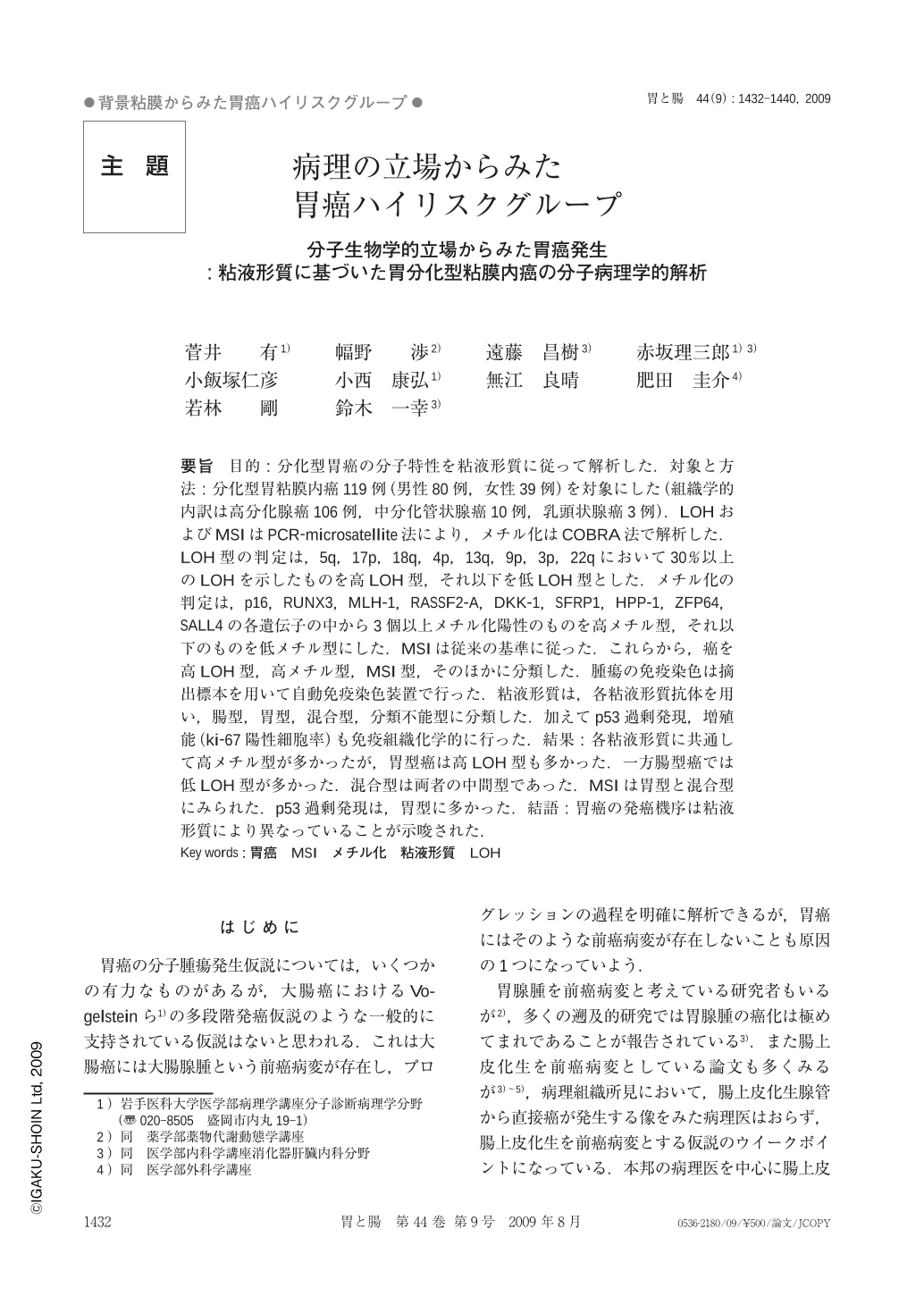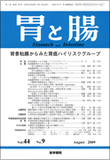Japanese
English
- 有料閲覧
- Abstract 文献概要
- 1ページ目 Look Inside
- 参考文献 Reference
- サイト内被引用 Cited by
要旨 目的:分化型胃癌の分子特性を粘液形質に従って解析した.対象と方法:分化型胃粘膜内癌119例(男性80例,女性39例)を対象にした(組織学的内訳は高分化腺癌106例,中分化管状腺癌10例,乳頭状腺癌3例).LOHおよびMSIはPCR-microsatellite法により,メチル化はCOBRA法で解析した.LOH型の判定は,5q,17p,18q,4p,13q,9p,3p,22qにおいて30%以上のLOHを示したものを高LOH型,それ以下を低LOH型とした.メチル化の判定は,p16,RUNX3,MLH-1,RASSF2-A,DKK-1,SFRP1,HPP-1,ZFP64,SALL4の各遺伝子の中から3個以上メチル化陽性のものを高メチル型,それ以下のものを低メチル型にした.MSIは従来の基準に従った.これらから,癌を高LOH型,高メチル型,MSI型,そのほかに分類した.腫瘍の免疫染色は摘出標本を用いて自動免疫染色装置で行った.粘液形質は,各粘液形質抗体を用い,腸型,胃型,混合型,分類不能型に分類した.加えてp53過剰発現,増殖能(ki-67陽性細胞率)も免疫組織化学的に行った.結果:各粘液形質に共通して高メチル型が多かったが,胃型癌は高LOH型も多かった.一方腸型癌では低LOH型が多かった.混合型は両者の中間型であった.MSIは胃型と混合型にみられた.p53過剰発現は,胃型に多かった.結語:胃癌の発癌機序は粘液形質により異なっていることが示唆された.
Background and aims : Identification of molecular characteristics of intramucosal cancers is essential to understand early gastric carcinogenesis. However, little has been known regarding the lesions. Materials and Methods : One hundred and nineteen patients with gastric differentiated-type intramucosal cancers(GDICs)were classified according to tumor mucin phenotype(gastric, intestinal, mixed and unclassified types). p53 overexpression, cell proliferative activity, loss of heterozygosity(LOH), microsatellite instability(MSI)and methylation status using a panel of 20 microsatellite markers(3p, 4p, 5q, 9p. 13q, 17p, 18q and 22q)and promoter regions of 9 genes(MLH-1, RUNX3, p16, HPP1, RASSF2A, SFRP1, DKK-1, ZFP64 and SALL4)were examined in 119 patients with GDICs. Results. p53 overexpression of gastric phenotype cancer was more frequently found compared with that of mixed phenotype cancer. Whereas multiple LOHs of tumor cells occurred in gastric phenotype cancers, they were infrequently detected in intestinal or mixed phenotype cancers. In addition, methylation at cancer-related genes is a common event in GDICs. Conclusions. Our data confirm that distinct molecular alterations in the GDICs are characterized by tumor mucin phenotype.

Copyright © 2009, Igaku-Shoin Ltd. All rights reserved.


